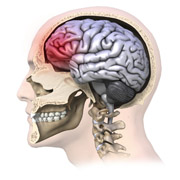Research and Innovation, UNL Office of

Center for Brain, Biology, and Behavior: Faculty Publications
Document Type
Article
Date of this Version
4-2007
Citation
Environ Health Perspect 115:623–629 (2007). doi:10.1289/ehp.9521 available via http://dx.doi.org/ PMCID: PMC1852679
Abstract
BACKGROUND: Tobacco smoking during pregnancy is known to adversely affect development of the central nervous system in babies of smoking mothers by restricting utero–placental blood flow and the amount of oxygen available to the fetus. Behavioral data associate maternal smoking with lower verbal scores and poorer performance on specific language/auditory tests.
OBJECTIVES: In the current study we examined the effects of maternal smoking during pregnancy on newborns’ speech processing ability as measured by event-related potentials (ERPs).
METHOD: High-density ERPs were recorded within 48 hr of birth in healthy newborn infants of smoking (n = 8) and nonsmoking (n = 8) mothers. Participating infants were matched on sex, gestational age, birth weight, Apgar scores, mother’s education, and family income. Smoking during pregnancy was determined by parental self-report and medical records. ERPs were recorded in response to six consonant–vowel syllables presented in random order with equal probability.
RESULTS: Brainwaves of babies of nonsmoking mothers were characterized by typical hemisphere asymmetries, with larger amplitudes over the left hemisphere, especially over temporal regions. Further, infants of nonsmokers discriminated among a greater number of syllables whereas the newborns of smokers began the discrimination process at least 150 msec later and differentiated among fewer stimuli.
CONCLUSIONS: Our findings indicate that prenatal exposure to tobacco smoke in otherwise healthy babies is linked with significant changes in brain physiology associated with basic perceptual skills that could place the infant at risk for later developmental problems.
Included in
Behavior and Behavior Mechanisms Commons, Nervous System Commons, Other Analytical, Diagnostic and Therapeutic Techniques and Equipment Commons, Other Neuroscience and Neurobiology Commons, Other Psychiatry and Psychology Commons, Rehabilitation and Therapy Commons, Sports Sciences Commons


Comments
Content is in the Public Domain